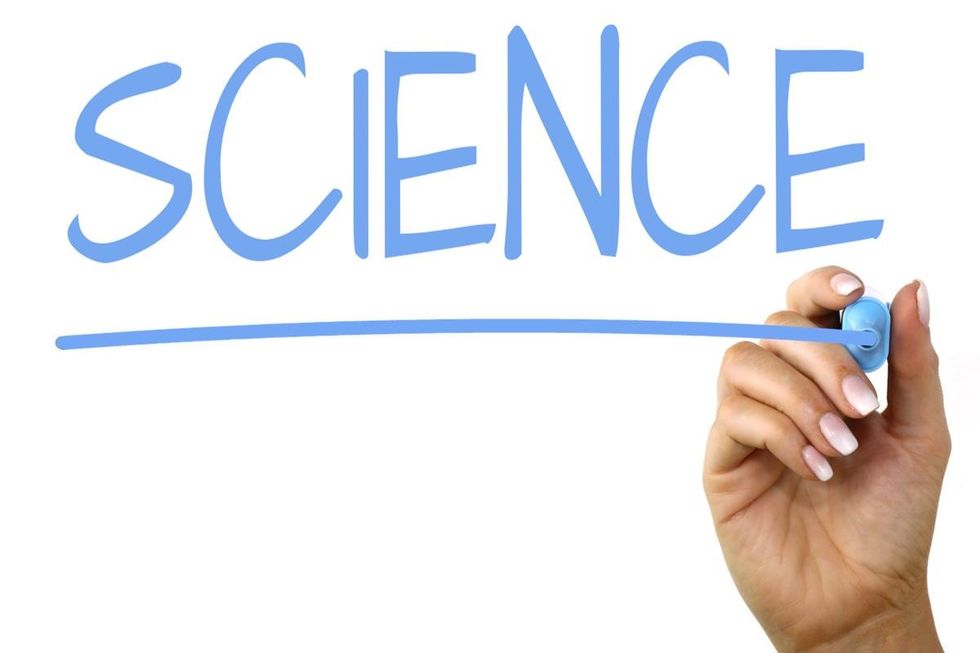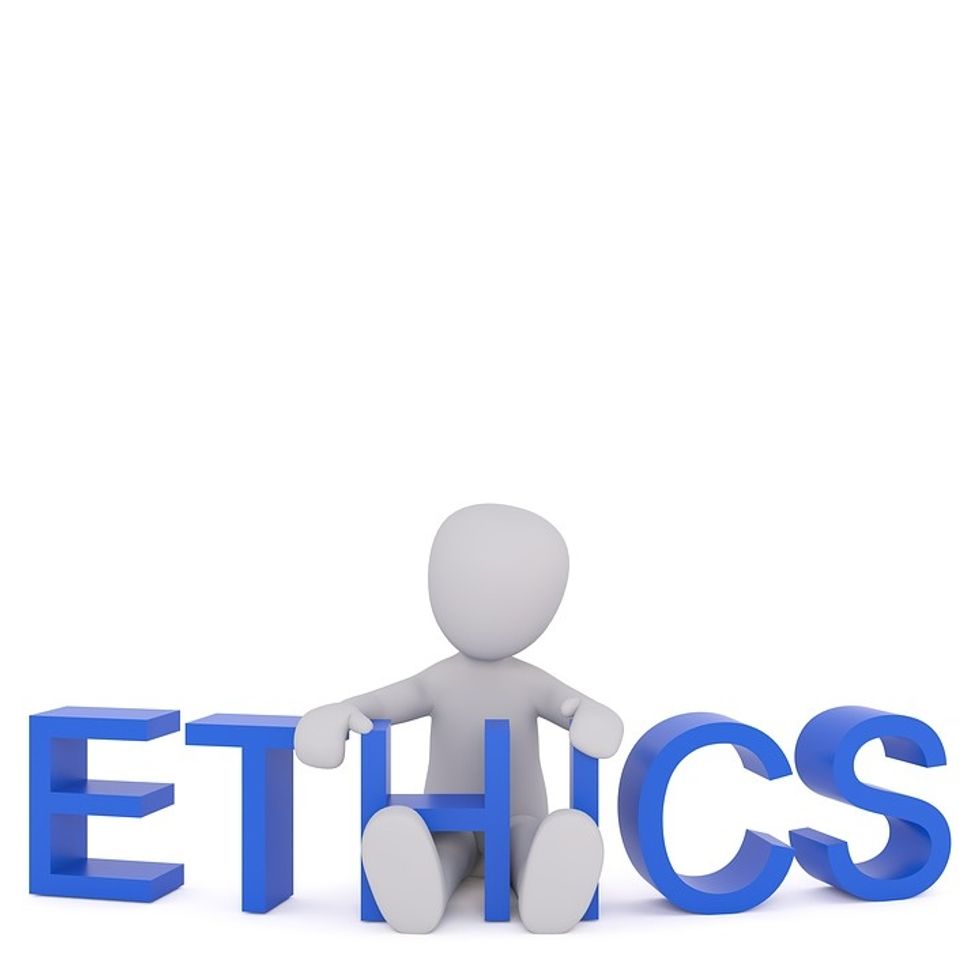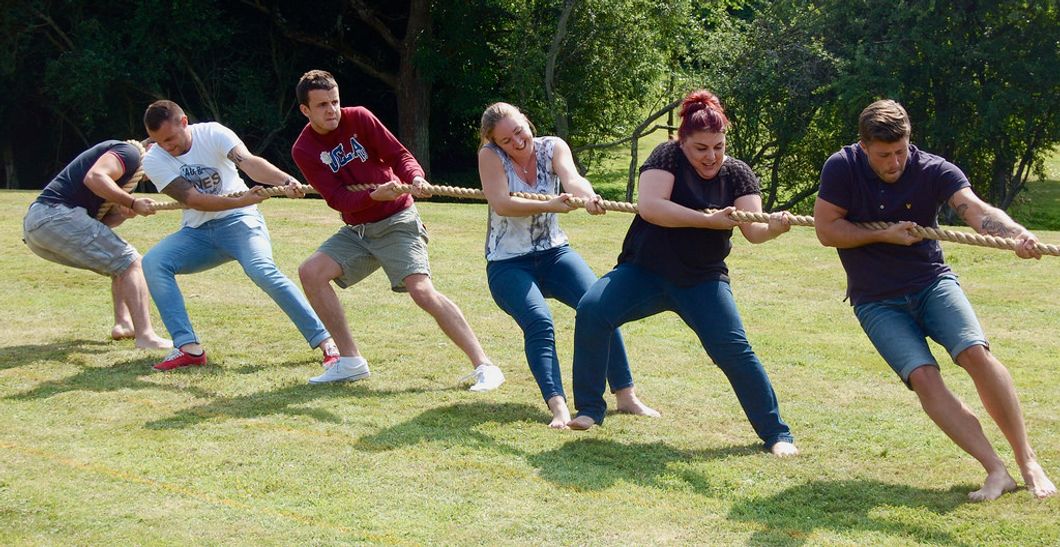We live in an imperfect world. I think this is fairly obvious for anyone to see. Hardly anything is perfect or without wrinkles. You could speculate about having the "perfect" society where every moral principle is applied everywhere without fail - justice, peace, wisdom, courage, love, etc. But it's pretty clear that no such society has ever existed or ever will exist, at least at a purely human level. I say "purely" human level because Christianity teaches that Christ will one day reign eternally in a newly established kingdom with no sin present for all eternity. That sounds like a utopia, and it is, but at a later time.
I'm here to talk about tensions within Christianity and other worldviews. I'm trying to say that no worldview is perfect or without tensions/potential weaknesses. As a Christian, I am convinced that Christianity is a reasonable view of the world that we live in, despite some of the problems we face within our own faith. Likewise, a secular worldview also has tensions that we typically expect or that could prove to undermine its truth.
The reason I bring this up is that it can be easy to poke holes in other systems of belief. I do think this is legitimate insofar as our criticisms are well-founded. But we Christians have our own problems too. I don't necessarily think they are impossible to resolve, but I don't think they are easy either. There are a few examples I will focus on because I think they are probably the biggest issues we face.
Science and the laws of nature.

Christianity has historically valued science. People like Isaac Newton, Kepler, and others were deeply religious people who believed their Christian faith provided a foundation for science to emerge. Secular humanists also value science. But there are tensions both have to deal with. For secular humanists, it's not a stretch to say that most if not all put science above other areas of knowledge (theology, philosophy, psychology, etc.) and say it's the only source we have for knowing what is real or the most reliable. This is called scientism. The problem with elevating scientific knowledge as the most reliable knowledge we have does not address why science works in the first place. Is there a real world we can know that is not created by the human mind? This question cannot be answered by science because it's a philosophical question.
On the other hand, for believers, even though we believe that God is a supremely rational Being who endowed human beings with the ability to reason and who made the world accessible to the human mind, we have critics. Critics will sometimes charge that if we believe God can interrupt the laws of nature when performing a miracle, then how do we say that the laws of nature are stable and predictable? After all, if God could interrupt the course of nature anytime He wanted to, then are we under the illusion that the laws of nature are stable and predictable into the future?
The human person.

A secular view of human beings will generally regard lesser-developed human beings as less valuable or as not having a right to life as teenagers or adults. I say this while recognizing that there are atheists and agnostics who defend the unborn's right to life against abortion. With that being said, most secular thinkers who focus on questions regarding the value of the unborn and of newborn infants will say that they can be killed through abortion on demand and perhaps through infanticide.
Peter Singer, who teaches at Princeton University, has publicly stated that an infant has a lesser right to life than a puppy that has self-awareness. According to Singer, because the unborn and the newborn lack self-awareness, abortion and infanticide are permissible. He is not alone. This idea is growing in popularity in the field of bioethics.
The problem, however, is their basis for believing we can end the life of the unborn and the newborn while sparing 3-year-old or even 4-year-old children who lack certain capacities that seem necessary for giving them the right not to be killed. Where is the line drawn between those we can kill and those we cannot? Is there a way to do this without being arbitrary? If they cannot avoid being arbitrary, should they toss out the equal rights principle?
Even Christianity teaches that every human life - not just as a biological organism but also as a person who possesses intrinsic dignity - begins at conception. However, there are still internal problems. First, when exactly does God create every individual soul for every child that is conceived? Is it before or after twinning can happen? Second, what about unborn children who die in miscarriages? Are they condemned to damnation, or do they inherit eternal life? There is no easy way to resolve this.
Morality.

Secular humanism arguably agrees with Christianity that moral truths are not creations of the human mind but are real independently of what we think about them. This is to say that morality is "objective." However, there are tensions for both ways of looking at the world.
For secular humanism, it seems reasonable to say that the most widely accepted theory in ethics (with some exceptions) is utilitarianism. Utilitarianism roughly says that we are morally obligated to act in the world in such a way that promotes the best happiness for the greatest number of people. One fundamental way of doing this is by avoiding and minimizing pain and suffering and pursuing happiness and pleasure. So what's the problem? Can we do just anything that could possibly make most people better off? What about torturing a child to death? What about starving a certain person or massacring almost an entire group of people for the sake of preservation of another group (e.g., the Holocaust)? Are there any actions that could never be justified regardless of the outcomes that might benefit others? This produces severe tension for those who also believe that human beings have intrinsic value and can never be used as means for a certain outcome.
Even though I am persuaded that Christianity is much better at preserving the dignity of every human being in the world, there are tensions here too. For example, in discussing whether we could ever be justified in waging war against other people groups, Saint Augustine - arguably the greatest Christian thinker that lived - did not mention children and noncombatants who are defenseless. Is it ever right to intentionally kill the innocent? Some would say yes, if God commanded you to do so. But then again, does anything become automatically permitted if there is a divine command or permission to do it?
These are difficult questions that every major Christian thinker has wrestled with, and there are no easy answers.
There are some things I would like to leave with my fellow brothers and sisters in Christ. First, do not walk away with the impression that there are no answers to these difficult questions. I believe there are even if they won't be found in this lifetime. Second, do not walk away feeling discouraged in your faith. Because we do not have all knowledge and are very limited in our understanding, there will always be tensions in our faith to sort out. But that is part of the journey. Lastly, I would encourage you to take up the biggest issue that troubles you and devote yourself to study, prayer, and discussion with the right people (not everyone can help you figure out the answer) who will encourage you.
God is great even when we struggle to understand Him sometimes. Sola de Gloria!






















